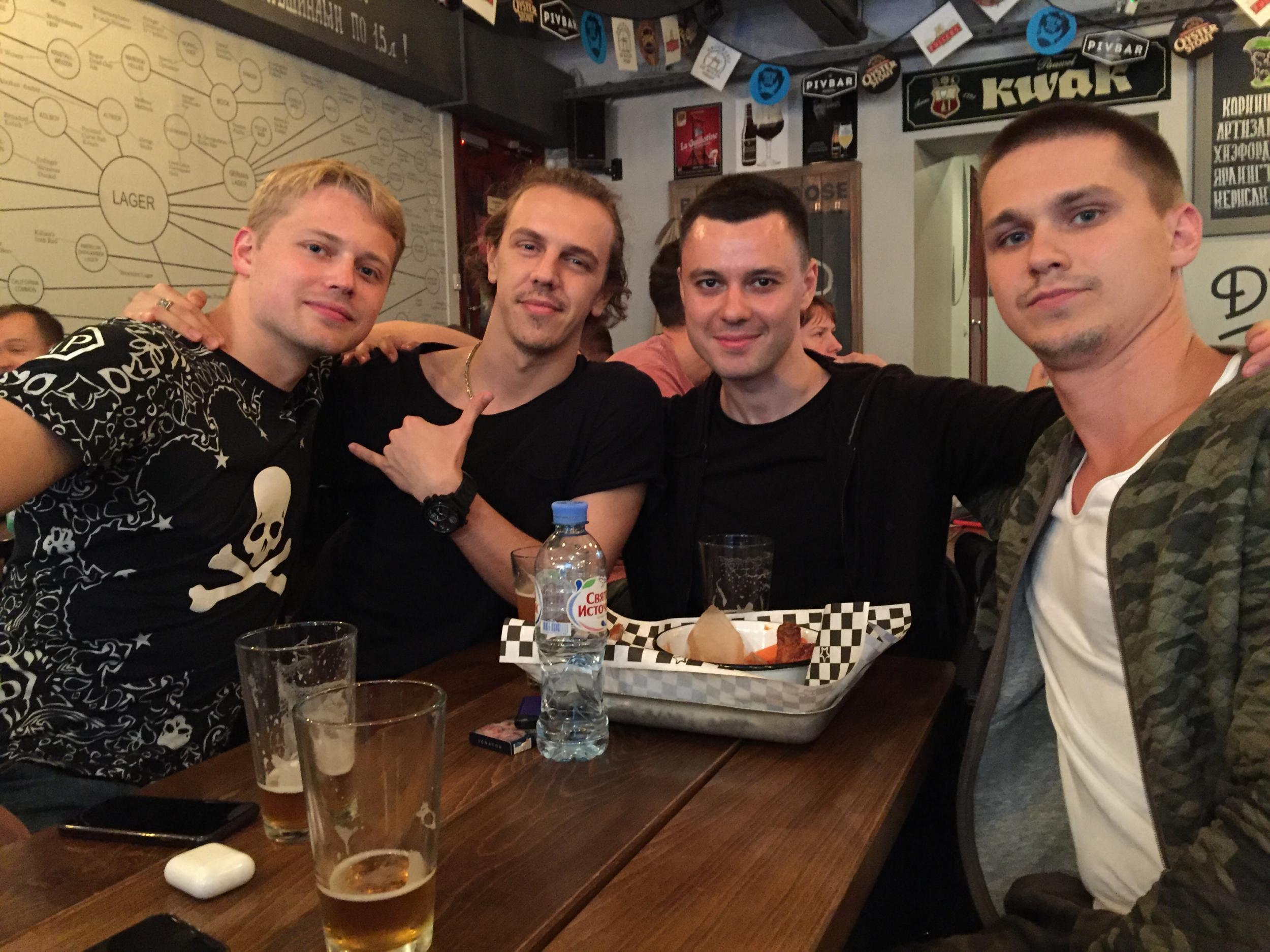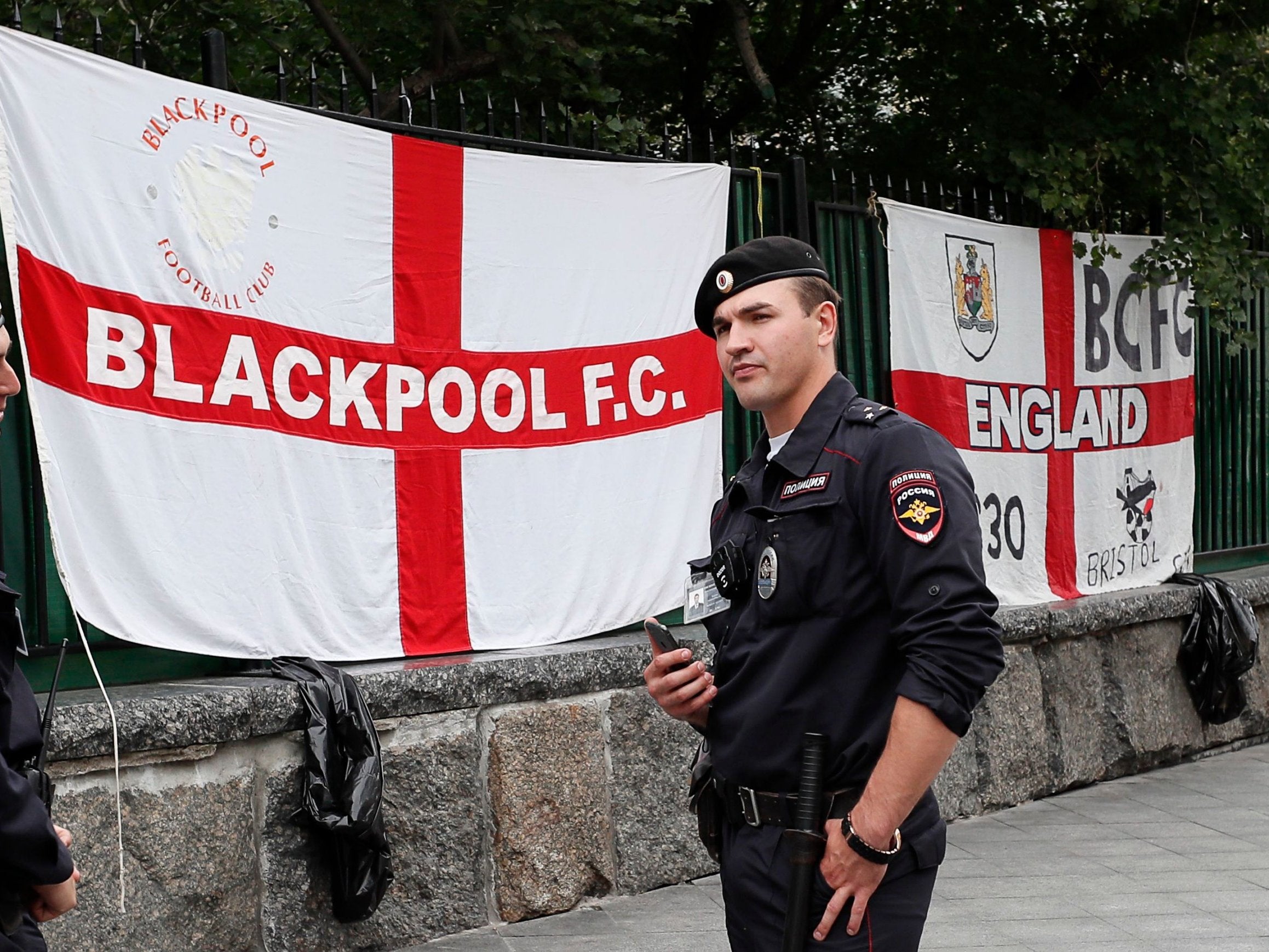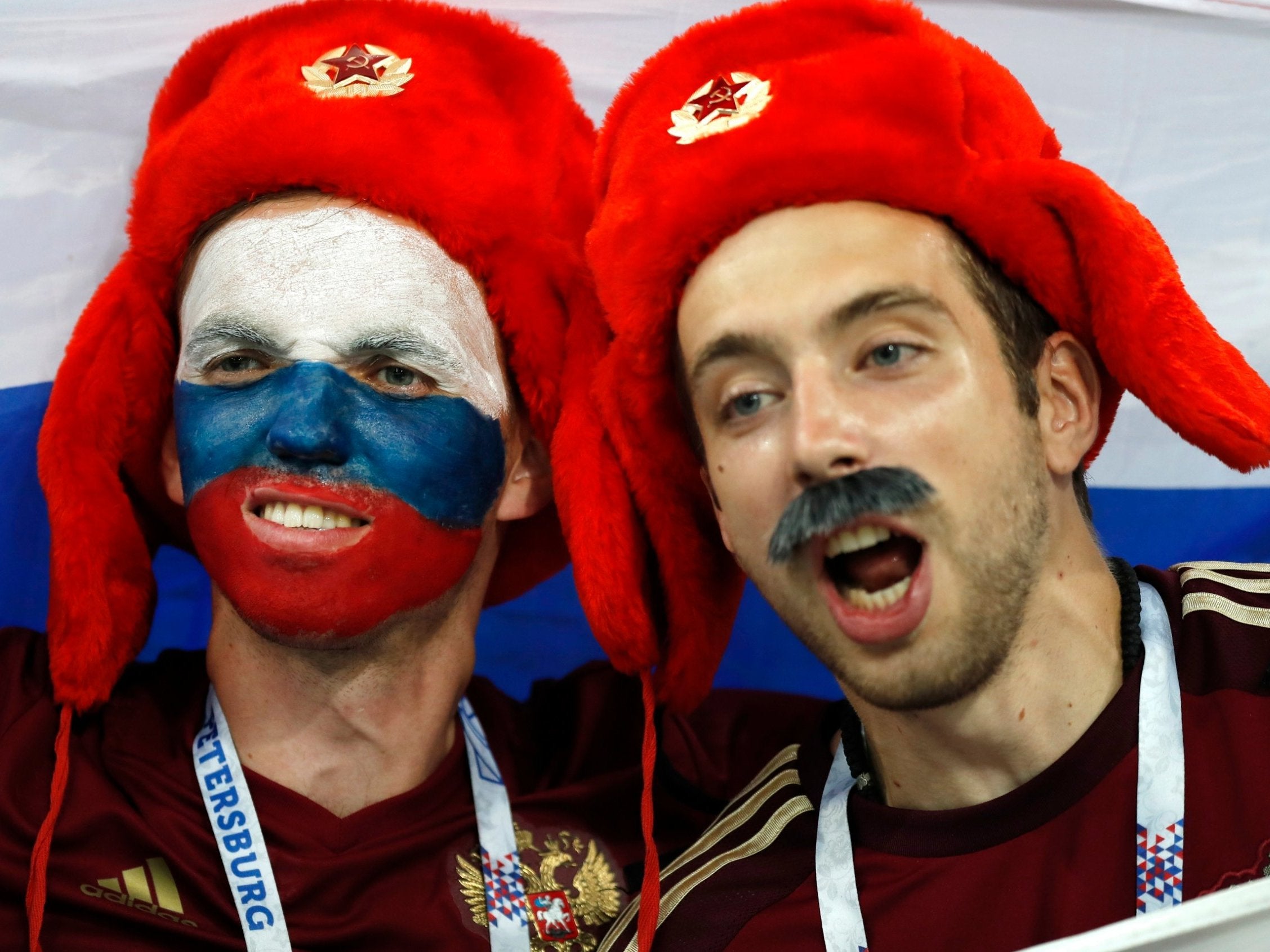World Cup 2018: Why Russians might be be supporting England - despite Croatia being Slavs
Relations between Moscow and Zagreb are not straightforward

Your support helps us to tell the story
From reproductive rights to climate change to Big Tech, The Independent is on the ground when the story is developing. Whether it's investigating the financials of Elon Musk's pro-Trump PAC or producing our latest documentary, 'The A Word', which shines a light on the American women fighting for reproductive rights, we know how important it is to parse out the facts from the messaging.
At such a critical moment in US history, we need reporters on the ground. Your donation allows us to keep sending journalists to speak to both sides of the story.
The Independent is trusted by Americans across the entire political spectrum. And unlike many other quality news outlets, we choose not to lock Americans out of our reporting and analysis with paywalls. We believe quality journalism should be available to everyone, paid for by those who can afford it.
Your support makes all the difference.A few minutes before midnight on Saturday night, Russia was penalty kicks away from a semi-final match with England. The tie had explosive potential. England would face the host nation of a tournament boycotted by its own government. Russia would face the declared enemy; the focus of four months of relentless propaganda on state TV. It would have been an existential showdown.
Two missed penalties later, Wednesday’s semi-final tie was turned on its head. Russians had a new dilemma: Croatia or England?
The choice is not as straightforward as it might seem. Yes, Britain is not flavour of the month. But Russia’s relations with their fellow Slavs are far from simple.
Their complexity was underlined with a leaked video showing Croatian defender Domagoj Vida performing a populist, pro-Ukrainian greeting. That video earned him a FIFA censure.
“The Vida incident has changed things for many Russians,” says Anton Prokudin, 21, a customer at the hipster Pivbar bar on the Garden Ring Road in central Moscow. “He should have kept quiet.”
The student says some of his friends have switched from supporting Croatia. He has decided to stick to Modric and Co – a “footballing” decision. The Croats are “better, more determined” than the English; they performed wonders against Argentina.

Others in the bar said they would support England. Tensions were for politicians and the media, said Sergei Petrov, 32. He was a fan of all things English – the music, the football, the humour. “Sport should be outside of politics,” agrees his wife, Maria Petrova, 28.
Kruzhka, another bar the other side of town, is a different type of establishment. There are few hipsters here. The basement bar is a hangout for those whose main concern is price. 250 rubles [£3] and 150 grams of vodka is yours. The interior is faded orange, and the scent – middle-age.
But not everyone here is keen to speak. A man in a tight black and brown laminated shirt answers only one question – “Croatia” – before returning to drink vodka with his friend.
Others refused to give their full names.
“The English are all clowns,” says “Alexander”, 63, a former submariner, who is drinking vodka and beer chasers with fellow military man Vladimir Afanasiev, 66.
“And don’t get me going on Boris Johnson,” he says. “You won’t like it.”
His friend Mr Afanasiev said England had never done Russia any favours: “You couldn’t call England a prostitute, that would be impolite. But they do go with whoever they want.”

Both men would be supporting Croatia at Luzhniki stadium on Wednesday, they said. There was no contest.
The Croats “may have been Nazis in the Second World War”, says Alexander, but they will always be “closer to the Russian spirit” than the English.
From the moment Russia lost on penalties, nationalistic commentators have zoomed in on the Croatian Second World War stance. Some have even drawn a direct line from that to Vida’s pro-Ukrainian video.
But it is another military campaign – the Yugoslavian wars of the 1990s – that will likely have a larger effect on Russian allegiances on Wednesday.
Russia’s ultras fostered close links with their Serbian counterparts during those years – and a corresponding animosity towards the Croats. T-shirts proclaiming “Kosovo je Srbija” are popular among the Russian ultras crowd. The Serbian question is one of few that unites the movement.
“Eighty eight per cent of Russians will be for England,” declares “Mikhail”, a barman at a central Moscow bar associated with footballs’ ultras. “No one is bothered about Skripal, Johnson or politics. The thing that really matters are the links we have with our Serbian friends.”
He reveals a tattoo of Dinamo Moscow: “There’s room for only one Dinamo here. No Zagreb. Never.”
When Nato embarked on the 1998-9 Kosovo campaign, it was football fan groups who took the lead in organising aggressive pickets of Western embassies. The American embassy came under particular attack, pelted by paint and all kinds of projectiles over several days.

Fan leader Alexander Shprygin, considered close to Russian ultras, was one one of the main organisers. He recalls how football fans would ring one another throughout the night to get the numbers together. They then joined forces with nationalist politician Vladimir Zhirinovsky.
“It was a small, closed world, but somehow, there were enough of us to cause trouble,” he tells The Independent. “We went to every embassy: the French, the British, the Germans, and to the Americans.”
Come Wednesday, England may well find themselves the beneficiaries of additional support from the most unusual of places.
“The Croats should be an opponent in principle, even if that means supporting the English for a match,” says Mr Shprygin.
Join our commenting forum
Join thought-provoking conversations, follow other Independent readers and see their replies
Comments